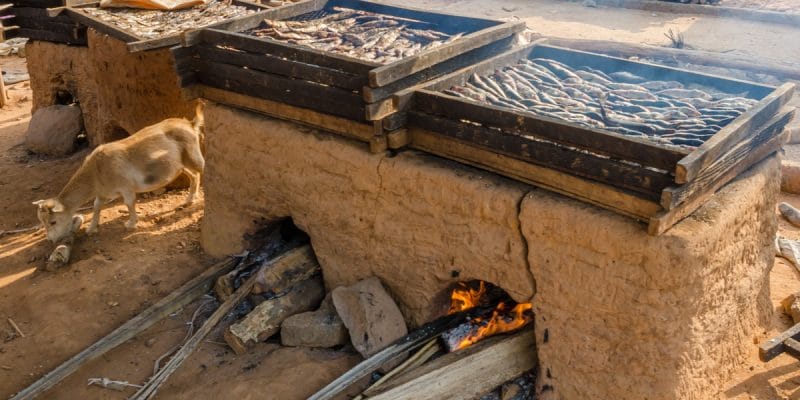Some fish smokers in Togo have received 108 improved ovens. The environmentally friendly equipment makes it possible to smoke fish in a sustainable way, while preserving the environment. An initiative of the Agricultural Sector Support Project (Pasa), financed by the World Bank.
For the past two years, the fish smoking centre in Katanga, located in the fishing port of Lomé in Togo, has been the scene of a wonderful experience for fish smokers. These economic operators have at their disposal an innovative and ecological tool that allows them to increase their production of smoked fish, while preserving their health and the environment.
These are the improved ovens, built in mud bricks. These materials give them better heat conservation, and therefore a large production capacity: 150 kg to 200 kg of smoked fish in 4 hours. These ovens have above all sanitary and ecological advantages. They protect the smokers against smoke that causes eye and lung diseases thanks to their lids. These ecological ovens also reduce air pollution and deforestation. They use little wood, which helps to reduce human pressure on the forest.
Deforestation is decreasing by 0.5% every year in Togo
A total of 108 ovens were distributed to women fish smokers. The introduction of these tools for fish smoking in Togo is part of Component I of the Agricultural Sector Support Project (Pasa), financed to the tune of 39.6 million euros (26 billions CFA francs) by the World Bank.
The improved ovens will strengthen Togo’s efforts to preserve its vegetation cover. According to Andreas Schleenbaacker, the head of the project for the rehabilitation of forests in Togo (ProREDD), forest cover in this West African country is 0.5% annually.
ProREDD has created income-generating activities for the benefit of people living in the protected forests. This has the effect of reducing community pressure on the forest, as well as improved stoves.
In addition, Togo is committed to the African Union’s AFR100 initiative, which aims to restore 100 hectares of degraded landscapes and lands by 2030. With an estimated forest cover of 386,000 ha, or 6.8 per cent of the national area, Togo aims to restore 1,400,000 ha of degraded forests.
Boris Ngounou







